Predict P(A|B) & P(A|B’) With New Conditional Pairs
Events don’t take place in isolation. Often we want to know the likelihood of an event occurring if another one does.
Metaculus has launched conditional pairs, a new kind of forecast question that enables forecasters to predict the probability of an event given the outcome of another, and provides forecast consumers with greater clarity on the relationships between events.
This post explains the motivation behind conditional pairs, how to interpret them, and how to start making conditional forecasts.
(Check out this video explainer for more on conditional pairs and how to forecast with them.)
How Do Conditional Pairs Work?
A conditional pair poses two conditional questions (or “conditionals”):
If Question B resolves Yes how will Question A resolve?
If Question B resolves No how will Question A resolve?
For example, a forecaster may want to predict on a question such as this:
The forecast depends—on many things. But consider one factor: Bing’s share of the search engine market.
And so if one knew that Bing’s search engine market would be least 5% in March of 2024, they could make a more informed forecast. They might assign greater likelihood to Alphabet’s decline.
Our conditional pair is then:
If Bing’s market share is more than 5% in March, 2024, will Alphabet’s market capitalization fall below $1 trillion?
If Bing’s market share is not more than 5% in March, 2024, will Alphabet’s market capitalization fall below $1 trillion?
(Start forecasting on this conditional pair here.)
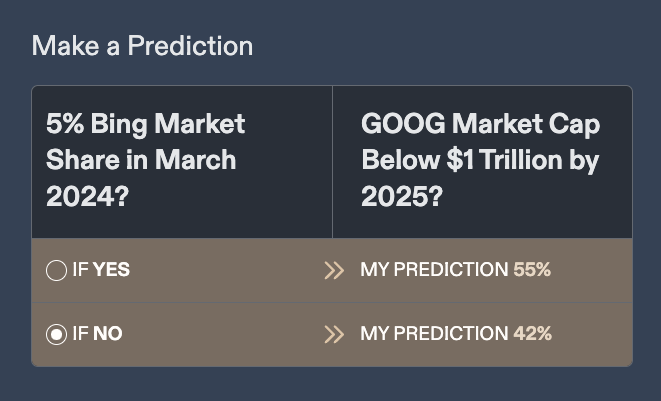
Two forecasters could have the same forecasts for Bing’s market share and Alphabet’s market cap while having very different mental models of their relationship. Conditional pairs help make these sometimes implicit differences explicit so they can be discussed and scored.
Start Forecasting on Conditional Pairs
Here are some newly created conditional pairs to start forecasting on:
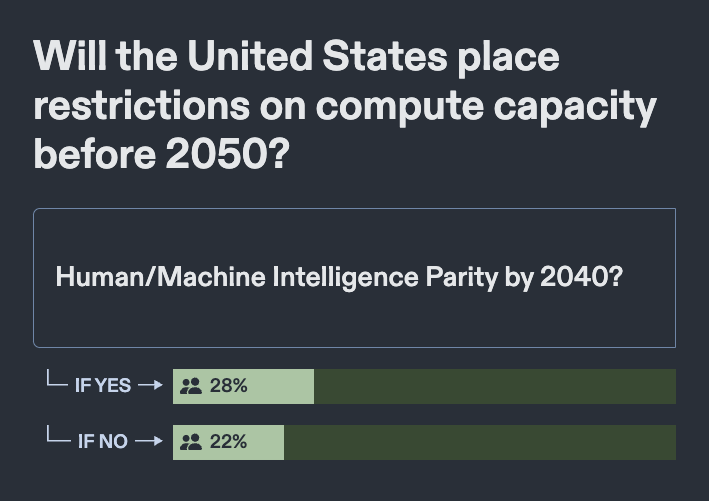
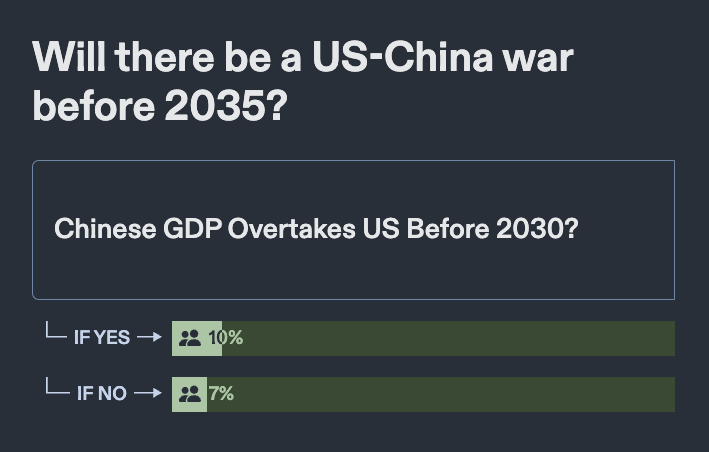
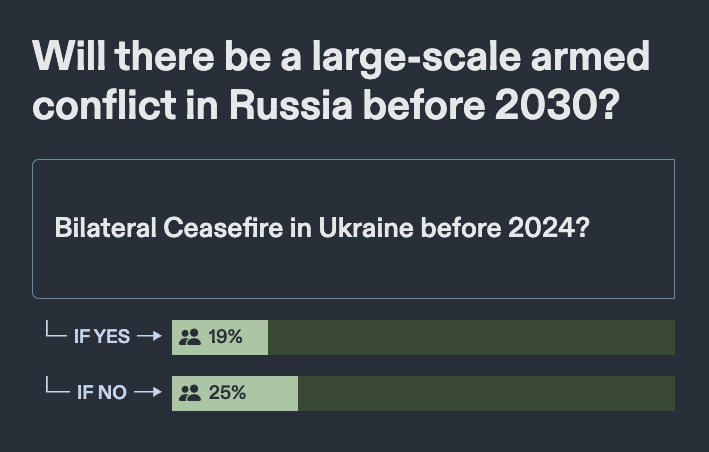
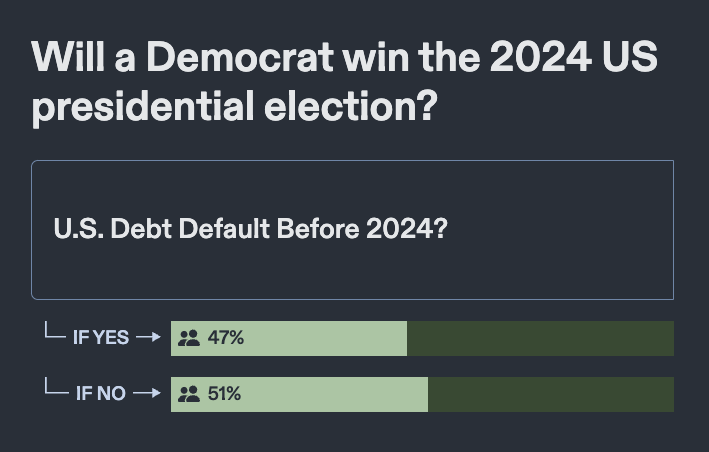
Parent & Child Questions
Conditional pairs like the above are composed of a “Parent Question” and a “Child Question.”
Parent: Bing has 5% Market Share by March, 2024
Child: Alphabet’s Market Cap is Below $1 Trillion by 2025
Forecasts are made for the Child question conditional on the outcome of the Parent. Here, see that:
In a world where Bing reaches 5% market share, the Metaculus community predicts Alphabet’s decline is 56% likely.
In a world where Bing does not reach 5% market share, the Metaculus community predicts Alphabet’s decline is 44% likely.
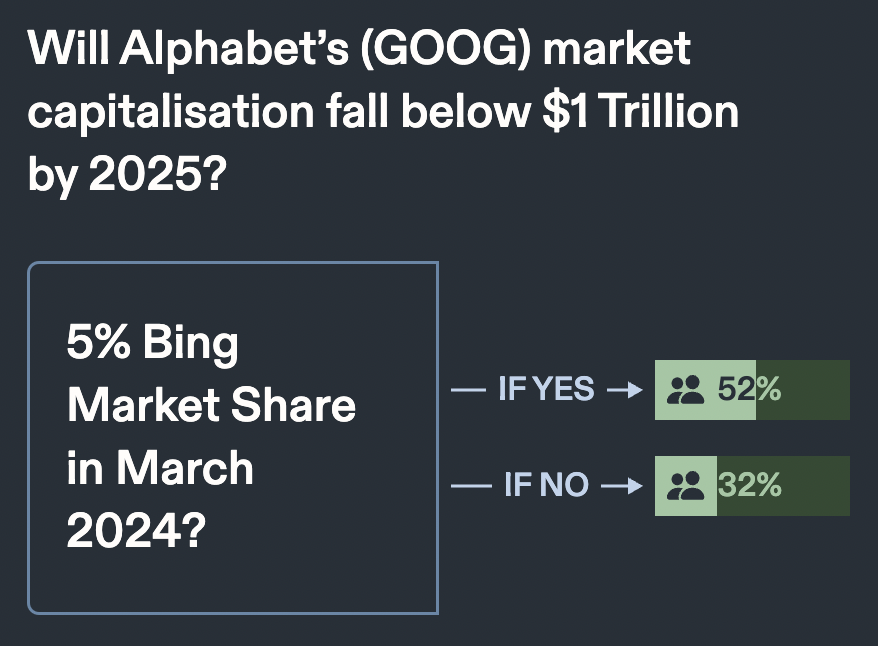
Conditional pairs are a step toward Metaculus’s larger goal of empowering forecasters and forecast consumers to quantify and understand the impact of particular events and policy decisions. Feedback is appreciated!
Really cool, thanks for the work and sharing it here! :)
I can’t seem to suggest a conditional question myself atm, will that also be possible soon?
@MaxRa , yes soon! Currently only admins have permissions to create conditional questions, but once our community is familiar with the feature, we’ll roll that out more broadly.